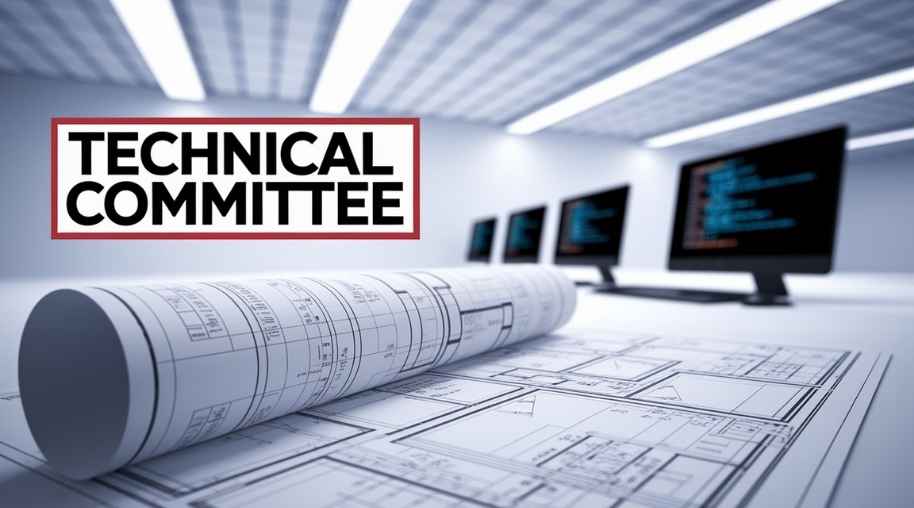TAC Full Form-Technical Advisory Committee
by Shashi Gaherwar
0 2765
Technical Advisory Committee (TAC): Role, Functions, and Importance
A Technical Advisory Committee (TAC) is an expert panel formed to provide specialized guidance on policy decisions, economic regulations, and technical matters. Various government bodies, financial institutions, and regulatory agencies rely on TACs to make informed decisions. These committees comprise subject matter experts from academia, industry, and research institutions who contribute their insights to policy formulation.

This article explores the concept, role, composition, benefits, and challenges associated with Technical Advisory Committees.
What is a Technical Advisory Committee?
A Technical Advisory Committee (TAC) is a consultative body that provides recommendations on complex technical and economic issues. In financial markets and policymaking, TACs play a crucial role in assisting regulatory authorities in making sound decisions.
Key Functions of TACs
TACs perform several critical functions to support policymaking:
- Policy Recommendations: Advising governments, central banks, and financial institutions on policy frameworks.
- Market Analysis: Assessing economic conditions and market trends to guide decision-making.
- Regulatory Guidance: Reviewing and suggesting improvements in financial regulations and governance.
- Risk Assessment: Identifying potential risks and suggesting mitigation strategies.
- Data Evaluation: Analyzing technical data for evidence-based policy formation.
- Public Consultation: Engaging with industry stakeholders for feedback and better implementation.
Composition of a Technical Advisory Committee
TACs consist of experts with backgrounds in:
- Economics and Finance: Providing insights into financial markets and policies.
- Banking and Monetary Policy: Advising on banking regulations and economic stability.
- Market Regulations: Ensuring compliance with legal frameworks.
- Technology and Innovation: Guiding advancements in digital finance and tech.
- Academia and Research Institutions: Offering research-backed recommendations.
- Industry Representatives: Bridging industry needs with policy objectives.
Benefits of Technical Advisory Committees
TACs offer significant advantages to regulatory bodies and economies:
- Expert Decision-Making: Providing data-driven insights to enhance decision quality.
- Enhancing Policy Efficiency: Offering guidance to refine financial and economic regulations.
- Risk Mitigation: Identifying financial risks early for proactive measures.
- Improving Transparency: Promoting accountability through independent, research-backed recommendations.
- Bridging Industry and Government: Ensuring balanced policies by connecting regulatory bodies with industry stakeholders.
Challenges Faced by TACs
Despite their benefits, TACs face several challenges:
- Bureaucratic Delays: Slow implementation of recommendations due to government regulations.
- Conflicts of Interest: Potential biases from members with industry affiliations.
- Limited Authority: Advisory role limits enforcement of suggestions.
- Need for Continuous Expertise: Rapid technological and economic changes require ongoing knowledge updates.
Examples of TACs in Various Sectors
TACs are utilized across multiple sectors:
- Central Banks: Advising on monetary policy and financial stability, as seen with the Reserve Bank of India (RBI) and U.S. Federal Reserve.
- Securities and Exchange Regulators: Drafting policies on financial instruments and risk management.
- Healthcare and Technology: Guiding policies on public health, data security, and innovation.
Future of Technical Advisory Committees
With the rise of technological advancements, digital finance, and global economic uncertainties, TACs are becoming increasingly relevant. Future trends include:
- Integration of AI and Big Data: Enhancing decision-making processes.
- Greater Stakeholder Engagement: Ensuring inclusive policy recommendations.
- Expansion into Emerging Sectors: Focusing on cryptocurrency, climate finance, and digital banking.
Technical Advisory Committees (TACs) play a vital role in guiding policy decisions, ensuring regulatory efficiency, and mitigating financial risks. Despite challenges, their expertise remains indispensable in shaping financial markets and governance structures. As economies become more complex, TACs will continue to evolve, providing data-driven, strategic insights for policymakers worldwide.
Further Learning Resources
If you’re passionate about building a successful blogging website, check out this helpful guide at Coding Tag – How to Start a Successful Blog. It offers practical steps and expert tips to kickstart your blogging journey!
For dedicated UPSC exam preparation, we highly recommend visiting www.iasmania.com. It offers well-structured resources, current affairs, and subject-wise notes tailored specifically for aspirants. Start your journey today!

Share:









Comments
Waiting for your comments